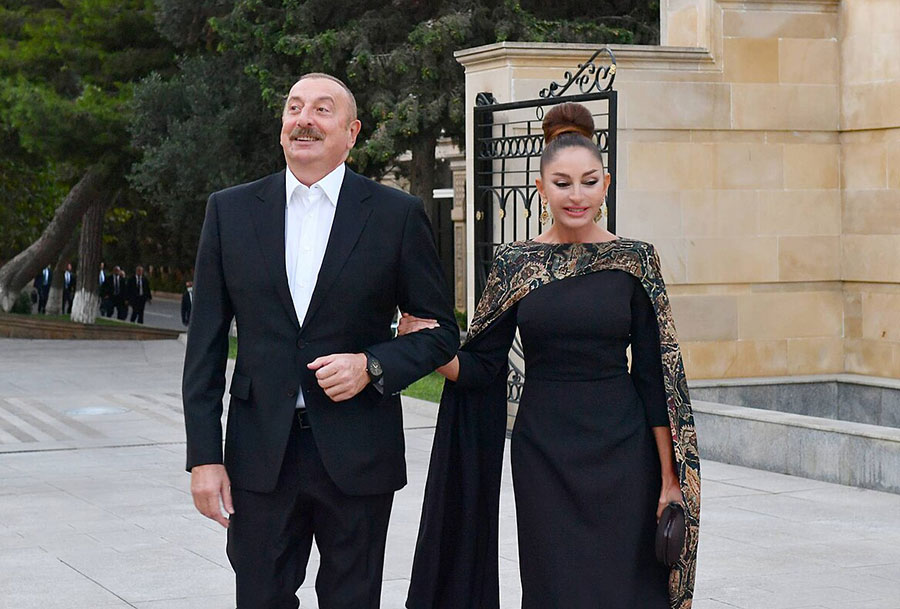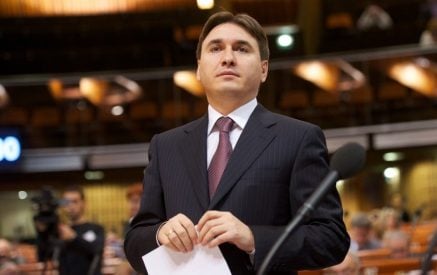Azerbaijani President Ilham Aliyev has doubled down on Azerbaijani support for separatist protests in New Caledonia, a French overseas territory with a land area more than three times the size of Nagorno-Karabakh. Aliyev’s decision to divert of Azerbaijani gas revenue to sponsor unrest in the territory comes in response to his anger at France standing up for Armenia’s security and sovereignty amidst efforts by Azerbaijan to lay claims to the entirety of the country.
Speaking in Shushi last weekend, Aliyev again referred to Armenia as “Western Azerbaijan.” His statement was both provocative but common. Azerbaijani officials and media refer to Armenia as “Western Azerbaijan” and say that the entire territory of Armenia is historically Azerbaijan. Speaking in 2022 to the Community of West Azerbaijanis, Aliyev explained, “Western Azerbaijan is our historical land, this is confirmed by many historical documents, historical maps, and our history,” and he called the presence of “our historical city — Yerevan” in Armenia “treason.”
Aliyev is delusional. All Armenians should commend France for recognizing the dangers of a dictator’s delusions and moving to prevent him from acting upon them. Frankly, the United States, United Kingdom, and the broader Western world should as well.
During the time of Saddam Hussein’s dictatorship, Iraqis told a joke: At a press conference, a journalist asked Deputy Prime Minister Tariq Aziz, “Can elephants fly?” Aziz said, “Of course not.” The journalist followed up, “But His Excellency Saddam Hussein said they could!” Without missing a beat, Aziz said, “Well, of course they can fly but only very slowly.” The point is that dictators surround themselves with yes-men and sycophants who never tell them they are wrong.
Read also
When dictators become untethered from reality, both reactive and proactive strategies are necessary. Defense is crucial to deterrence. Had the United States deployed forces into Kuwait when Saddam Hussein began threatening the country in July 1990, he would not have invaded the following month and the region might have avoided not one war but two. That is the reason why French military support to Armenia is so crucial today and why, frankly, the United States and other countries should follow suit.
As dictators grow delusional, however, other opportunities also emerge. Aliyev should be wary. Not only poor Azerbaijanis hate him, but so does the Pashayev clan from which his wife hails. She is a spendthrift. The military is uncomfortable at the possibility that their son would succeed Aliyev, given the rumors that he is autistic. The problems are open, even as Azerbaijan’s partners ignore them. Ambassador Elin Suleymanov’s departure from the United States after 16 years was due not to any failure on his part, but rather because of disputes between relatives back home; Suleymanov’s tenure in the United Kingdom is less honor than a graceful exile.
Azerbaijan may be a police state but as Azerbaijanis talk, Western intelligence services listen. Just as Saddam Hussein’s son Uday’s abuse of girls from elite families culminated in at least one assassination attempt, the ramifications from Ilham’s #MeToo episodes while his father was president still fester, especially since at least one girl involved from an elite family was a minor. As much as Aliyev believes he has the British government in his camp because British Petroleum makes billions of dollars from Azerbaijan’s fields, they fail to understand historic British duplicity: So long as a new partner would guarantee BP’s contracts continue, Aliyev is disposable.
Put simply, France would have many Azerbaijani partners with which to work should they wish to see Aliyev gone. Historically, in Africa, France is well-practiced in ousting leaders for far less noble reasons. Meanwhile, Britain may not be the protector Aliyev believes it to be. Certainly, Turkey’s own intelligence service will work overtime to prop up Erdogan’s loyal proxy but that may not be enough.
Azerbaijan might host the 29th UN Climate Change Conference (COP#29) in November 2024 but if Aliyev will be there to preside remains an open question.
(Michael Rubin is director of policy analysis at the Middle East Forum and a senior fellow at the American Enterprise Institute.)























































